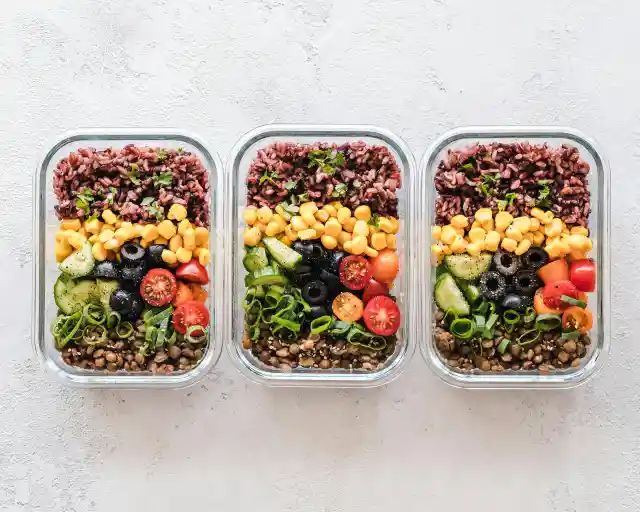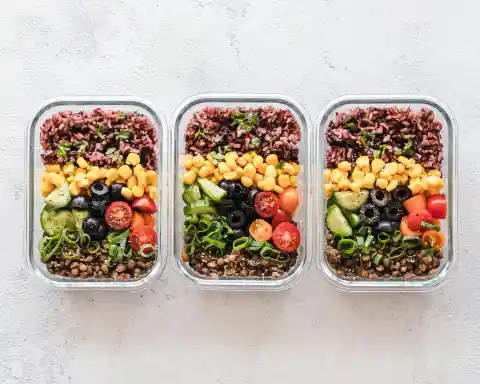Mindful eating is a habit that you need to adopt for a sustainable lifestyle. Your relationship with food is a very important one because food helps sustain you by providing you with the nourishment you need daily. It is, therefore, very important for you to be mindful of what you eat, as it will affect your body, mind and soul. If you want to understand how to eat mindfully, we’ve got you. Here is a list of the ways you can practice mindful eating.
Plan Your Meals


Instead of just cooking whatever is accessible at that time, you need to become more diligent in planning your meals. This will help you to consider factors like nutritional balance and the ingredients needed. By doing this, the focus will lean more on healthy eating rather than eating because you were driven by hunger. Instead of eating the same thing every day, you will also get the time to be more innovative and creative with your meals. Planning meals is, therefore, something you can adopt so that you become a mindful eater.
Establish Your Meal Times


If you want to practice mindful eating habits, you need to establish meal times. Eating routinely will help you program yourself into prioritizing eating, which will, in turn, help you avoid skipping any meals. By having your meal time registered in your subconscious, you will allow yourself the opportunity to set aside specific times that you make time for eating so that you can eat consistently. This allows you to be attentive to your need for nourishment, improving your relationship with food and helping you become a mindful eater.
Serve Reasonable Food Portions


Serving food is not about filling your plate till there's no space left. You need to be mindful of the portions you serve. Serving too much or too little food both have negative impacts on our bodies. It will result in us having unmanageable weight, posing a threat to our physical and mental health. It will also leave you bloated or hungry and unproductive thus it being a drawback in your life. You need to serve smaller food portions and if you still feel hungry, you can add more portions. Practice the art of serving just the right amount of food.
Eat Slowly


When you are eating, you are not being rushed by anyone or anything. You need to breathe, relax and eat slowly so that you can savor the moment. Ensure that you chew your food thoroughly, to avoid any digestive problems. By eating slowly, your food experience will become more enjoyable while also preventing abdominal pain due to consuming large chunks of food. You will also be able to tell when you are full instead of just stacking food on top of each other. To practice mindful eating you therefore need to eat slowly and unrushed.
Listen to Your Body


If you pay close attention to your body, it will tell you what it wants. For you to have mindful eating habits, you need to listen to your body. When you are hungry your body will tell you, and likewise, your body will tell you when it is full. You, therefore, need to pay attention to these cues so that you can react accordingly. You also need to ensure that you discern between hunger and thirst. Most people often mistake thirst for hunger, increasing their snacking habits and making them unhealthier. If you feel your lips becoming dry and if you are a little fatigued, start by drinking a glass of water. You may realize that you were not hungry but just thirsty.
Avoid Multitasking


Why are you always eating while doing something else? If you are one of those people who take eating time as a chance to catch up on movies or do something else you need to desist from this. Your food requires all of your senses to be in sync for an enjoyable experience. You need to be attentive and eat without any distractions for an enjoyable and satisfying eating experience. Give yourself time to focus solely on your food, its color+, shape and taste without doing anything else. This will help you appreciate your food, improving your relationship with it.
Engage Your Emotions


Your relationship with food should not only be superficial but deepened by your emotions and more connected to your emotions so that your eating experience is enhanced. Take time to reflect on whether you are hungry or just need food as a comfort mechanism and as a distraction from what you are going through. Also, take into consideration what you feel like eating and indulge yourself once in a while so that you enhance the connectedness between food and your emotions. By taking the time to understand your emotions and feelings before, during and after eating, you will understand your eating habits more, which will aid you in mindful eating.
Take One Step at A Time


Let’s face it, you can’t just wake up having mastered the game of mindful eating. It takes time and you need to be patient with the process. You need to start small by doing smaller list items like creating routines, cutting out unhealthy snacks or planning for your meals. You can then incorporate other mechanisms little by little, as your confidence in those areas is strengthened. Adjust your eating habits to match what is more sustainable for you then tailor it as you like. After all, this is your food journey so you need to adjust it to suit you. By doing it step by step, you heighten your chances of seeing the experience through as you will have a solid foundation to back you up.